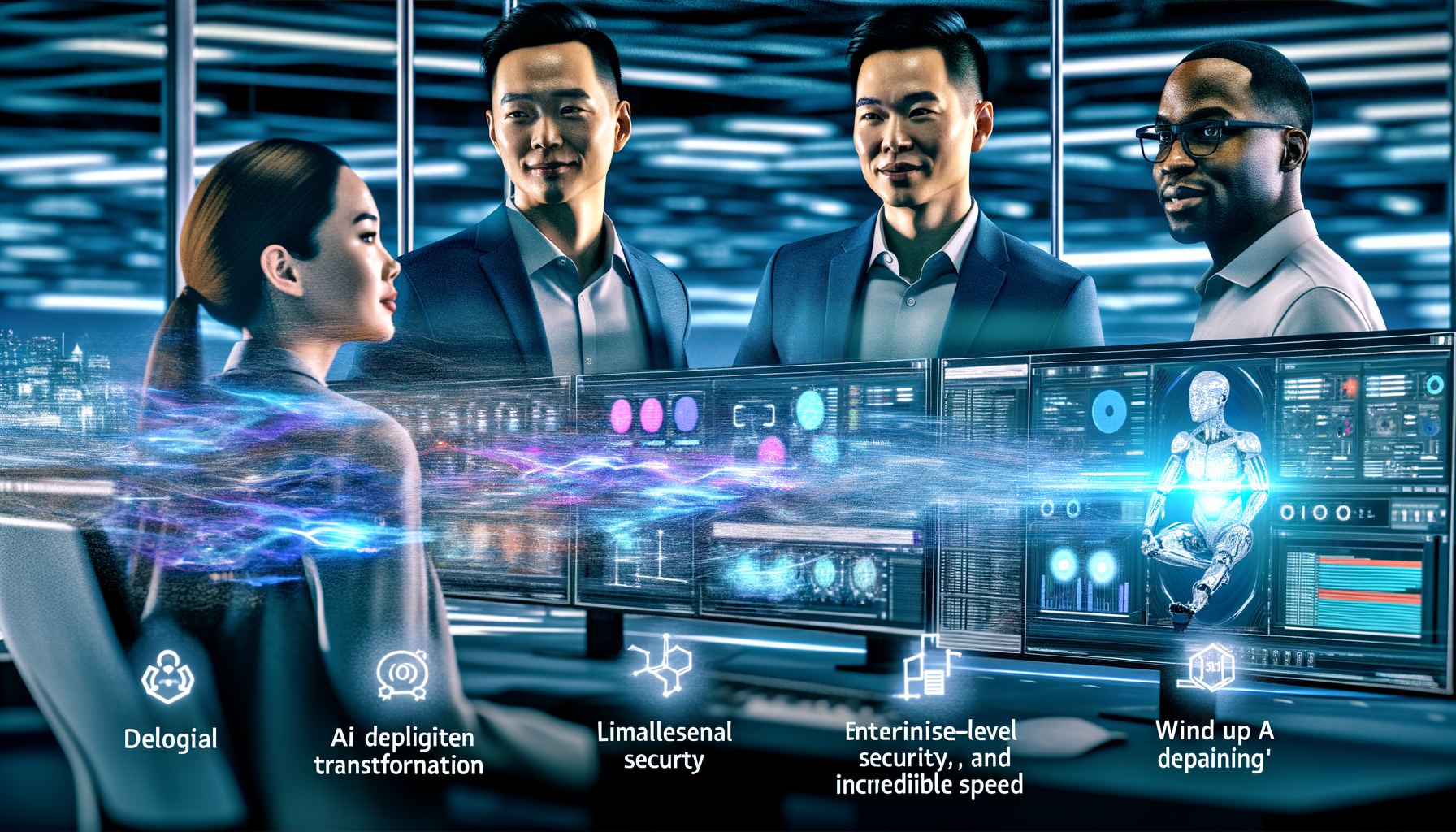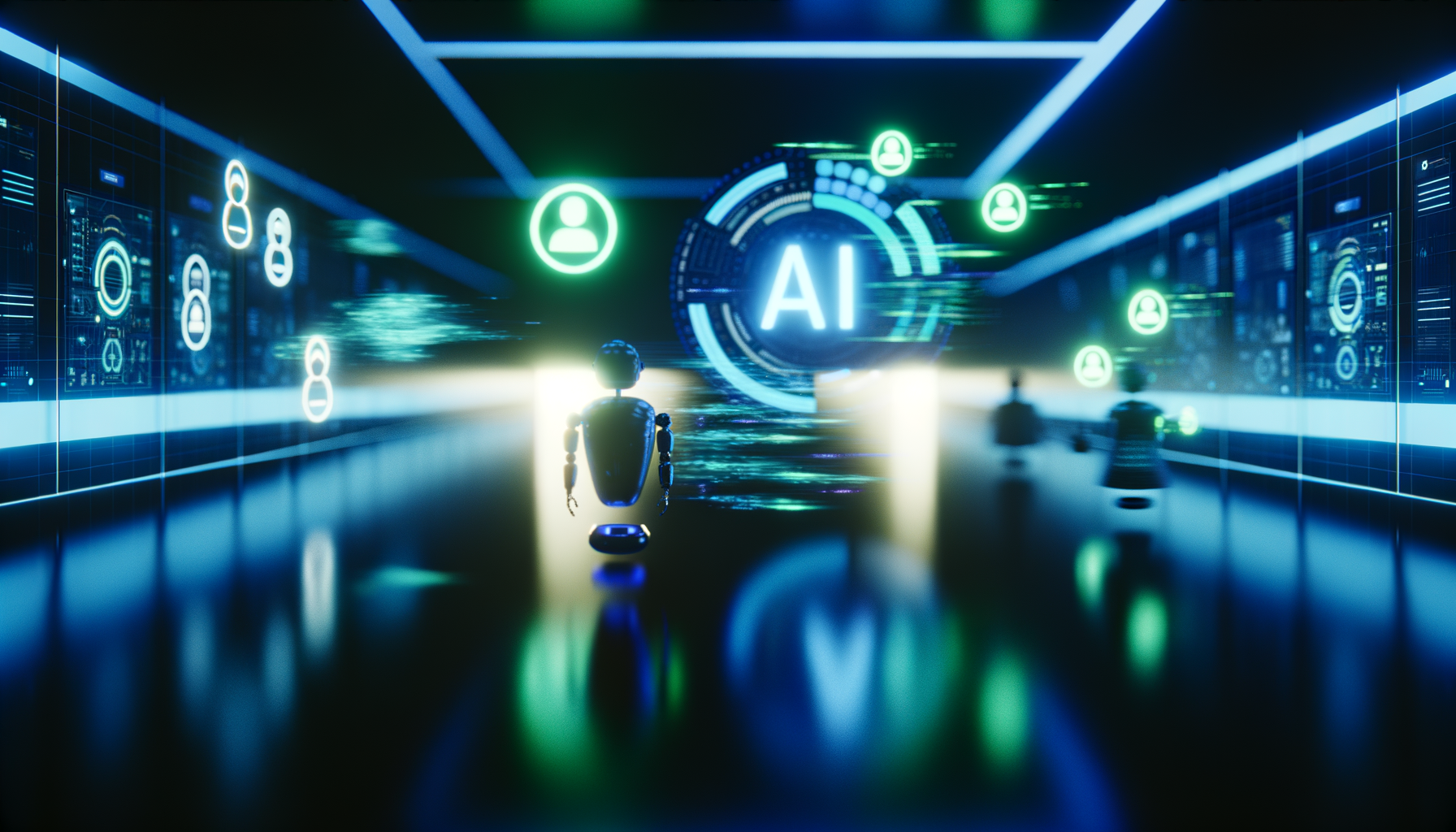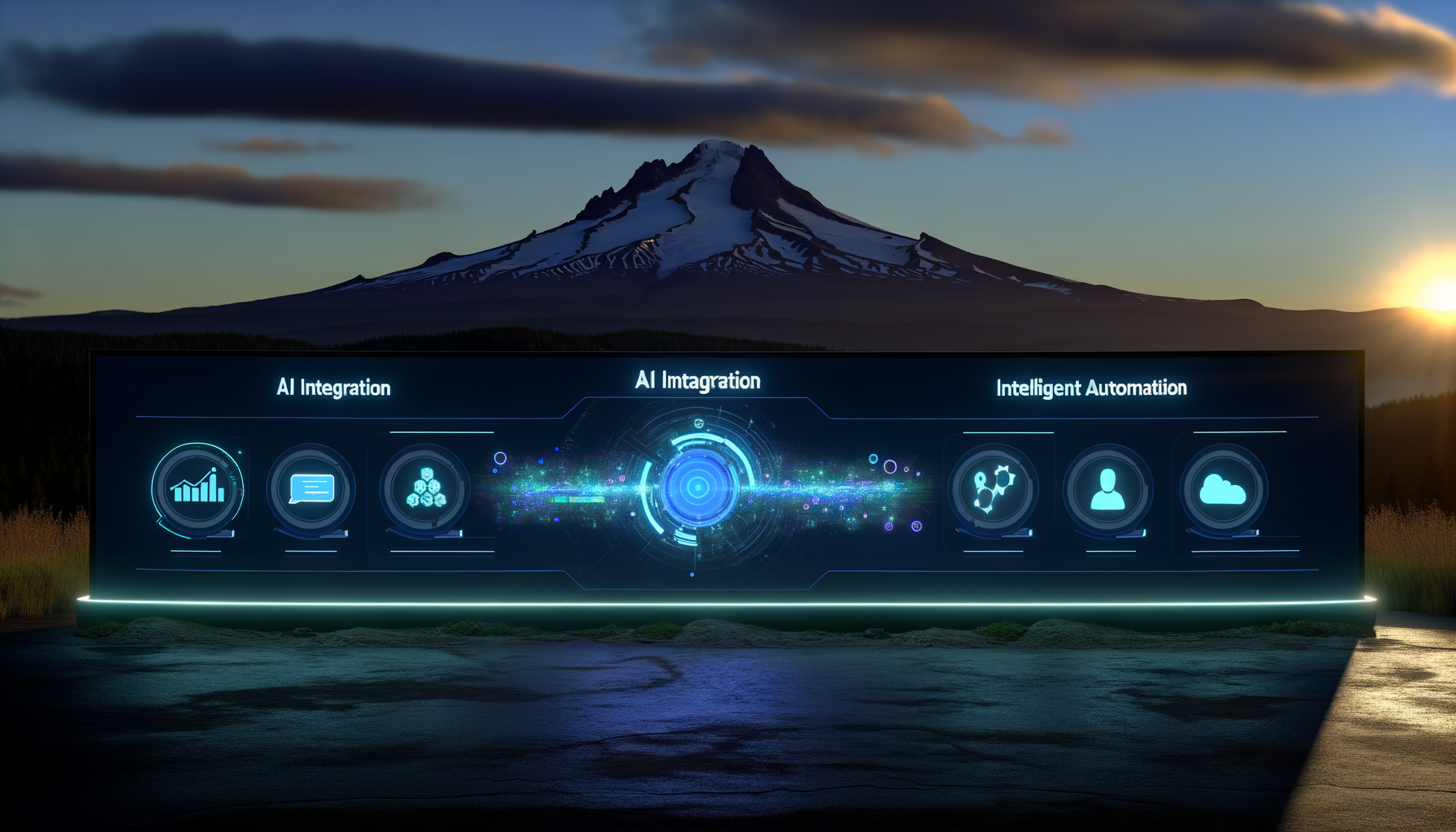In 2025, AI integration is no longer optional—it's essential. With a staggering 85% of enterprises investing in AI-driven automation (source: Gartner, 2023), businesses must embrace intelligent automation to stay competitive. This article unveils tangible strategies for integrating AI into your operations, ensuring scalability, security, and superior customer experiences. Let's dive in and discover how AI can be a catalyst for your business transformation.
Understanding AI Integration

AI integration concept with flowchart and tech graphics.
AI integration involves embedding artificial intelligence capabilities into existing business processes. This can range from simple automation of mundane tasks to complex decision-making systems that enhance operational efficiency.
The Pacific Northwest, known for its tech-savvy culture, is at the forefront of this AI revolution. Companies are leveraging AI to automate workflows, improve data analysis, and drive strategic decisions.
Imagine AI as a silent partner in your operations, continuously learning and optimizing without fatigue. It's like having a team of experts working around the clock, ensuring your business remains agile and efficient.
LIST
- •Enhanced decision-making
- •Streamlined operations
- •Improved data accuracy
Key Benefits of AI Automation

Graph showing increased productivity with AI automation.
AI-driven automation offers numerous benefits, including improved productivity, cost reduction, and better resource allocation. A recent study by McKinsey (2023) highlights a 20-30% increase in productivity for companies leveraging AI.
It enhances customer experiences by providing personalized interactions at scale. Think of AI as your most efficient customer service representative, handling inquiries and resolving issues faster than any human could.
AI also supports scalability, allowing businesses to handle increased workloads without compromising on quality or speed. This is crucial for growing enterprises seeking to maintain high standards while expanding operations.
CALLOUT
AI boosts productivity by 20-30%, reducing operational costs significantly.
Overcoming Challenges in AI Deployment

Tech team collaborating on AI deployment strategies.
Deploying AI is not without its challenges. From data privacy concerns to integration complexities, businesses must navigate these hurdles carefully.
Security remains a top priority. At Quicklook, we emphasize enterprise-grade security measures to protect sensitive data and ensure compliance with industry standards.
Another challenge is bridging the talent gap. Investing in training and hiring AI specialists is crucial for a successful deployment. Partnering with experts like Quicklook can also provide the necessary expertise and support.
QUOTE
Successful AI integration requires both robust security and skilled expertise. — Quicklook
Case Studies: Successful AI Integration

Collage of AI integration success stories.
Consider a Pacific Northwest retailer that implemented AI to personalize marketing campaigns, resulting in a 25% increase in conversion rates.
Another example is a healthcare provider using AI to streamline patient data processing, reducing administrative costs by 15%.
These success stories illustrate the transformative power of AI when integrated strategically into business operations.
LIST
- •Retailer: 25% conversion boost
- •Healthcare: 15% cost reduction
Future of AI in Business

Futuristic AI concept with business technology.
The future of AI in business is promising, with advancements in machine learning and natural language processing paving the way for more sophisticated applications.
As AI technologies evolve, they will continue to enhance business processes, drive innovation, and improve customer experiences.
Businesses that adopt AI now will position themselves as leaders in their industries, ready to tackle future challenges with confidence and agility.
CALLOUT
Embrace AI today to future-proof your business and lead in innovation.
Frequently Asked Questions
QWhat are the key benefits of integrating AI into business processes in 2025?
QHow can AI-driven automation enhance operational efficiency in modern enterprises?
QWhat challenges do companies face when implementing AI integration and intelligent automation?
Conclusion
AI integration and intelligent automation are pivotal for modern businesses aiming to stay competitive and efficient.
Future Vision
As AI technology continues to evolve, its potential to transform industries will only grow.
Schedule your AI audit with Quicklook.
